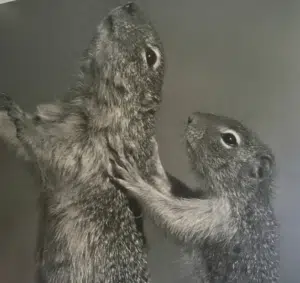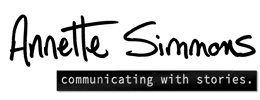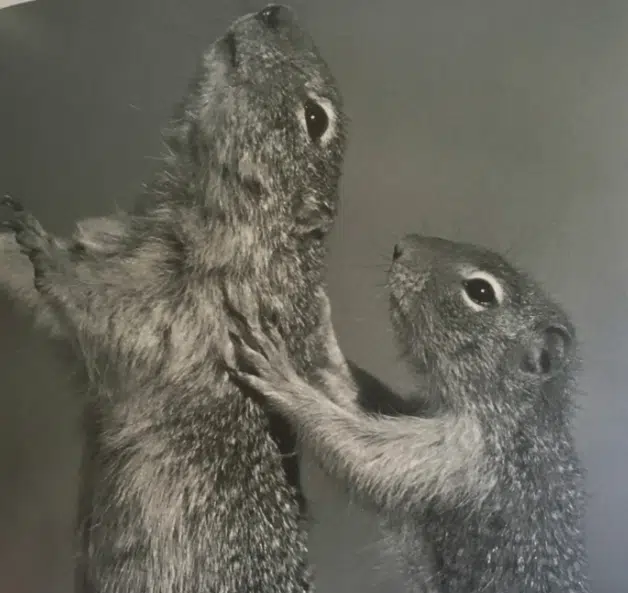
Blueprints for Building Trust
Learning to drive was fun until I hit the mailbox. I burst into tears, blaming my dad, “You told me not to brake when turning corners!” It wasn’t my fault that he neglected to clarify I should brake before turning the corner so I could release the brakes while turning the corner. Through my face-palmed fingers I could see his wooly eyebrows lower as he stared at me from the passenger side of our 1972 V8 Dodge Charger. He had told me to turn right as we were driving through our neighborhood, and I did exactly that. I turned the steering wheel right without braking, fishtailed, hit a black mailbox, and pulled over to cry. I dreaded the upcoming apology and wondered how much money it would cost me to fix it. I buried my face in my hands and listened as my father got out of the car and his steps crunch, crunch, crunched in the gravel as he walked back to inspect the damage. After a long pause, he shouted, “Get out of the car and come look at this!” I obeyed reluctantly and was confused to see the black mailbox upright and undamaged but slightly swaying back and forth. On closer inspection the mailbox post was mounted on an industrial spring secured in concrete. Apparently I was not the first driver to cut that particular corner too fast and too close.
Telling stories is at least as powerful and dangerous as driving a car. Getting there fast is not always the best tactic. We hit mailboxes along the way. Making mistakes and learning from the mistakes of others is the very essence of all mastery, particularly storytelling. The idea that we might be reengineering evolution’s primary method for moderating greed makes it that much more important to catch bad habits before someone gets hurt. Not all of the mailboxes we hit can bounce back.
For centuries, parents have used stories to teach fledgling humans how to “drive” without hurting others. Stories offer blueprints for interpreting the world, maintaining relationships, and controlling impulses. Not just so the kids don’t burn the house down, but, according to evolutionary psychology, so kids learn the downside of acting like a raging narcissist without empathy, who can see no value in collaborative efforts and no reason to sacrifice for the collective good. Stories train little humans how to balance what to give and take by demonstrating the real-life consequences of immoral actions over time.
Aesop’s fables still circulate after more than 2,500 years because these stories are endlessly relevant and therefore endlessly meaningful and entertaining. Aesop employed animal characters like the wolf to teach moral lessons. Aesop gave us metaphorical scenes that warn us not to trust wolves dressed in sheep’s clothing; to respect a wolf’s warning to balance the prospects of a full belly against wearing the collar of a domesticated dog; and to remind ourselves of the danger of false alarms, with a story about a little boy who cried wolf once too often. When we retell these stories designed to entertain as well as model vital cultural habits, we preserve centuries of lessons derived from human survival experiences.
Evolutionary psychologists now suggest that storytelling might have developed as a result of natural selection. Humans who collaborate in groups consistently survive and thrive better than isolated humans unprotected by a group. Stories that bend human behavior toward collaboration with our neighbors protect us from the danger of letting Rome burn while we argue over who started the fire.
If our bodies only provided a chemical high for individual wins, we’d make far fewer sacrifices for the common good. We might hoard resources and fail to build the kind of infrastructure vital to human progress. On the other hand, if we only got our highs from bonding, we might not venture out to pursue new paths of progress. Only stories can preserve the paradox that we must seek both. In order for humans to survive and thrive, we need stories that don’t oversimplify the difficulties of building both good fences and good relationships.
Because any theory about evolution is impossible to prove outright, we are left to examine our own personal experiences for evidence that validates the idea that we need cultural stories to promote the kind of morals that will sustain collective survival. You already know how doing the right thing usually requires some sacrifice of time, money, or personal goals for the greater good. To keep us making these sacrifices we need vivid storytelling that sustains the promise that doing the right thing is a cost well worth the investment. It’s no accident that our ancestors learned to ritualize sacrifices as a path to renewal. Themes of reincarnation, resurrection, and phoenixes who emerge from the fires of destruction interpret pain and loss as a sacred path to transcendent illumination—not a reason to pick up all your toys and leave or numb the pain with a purchase. Stories that remind us of our shared dependence cultivate the emotional fortitude required to pay the high price of preserving collective survival. These are the stories that will enable us to address climate change.
Excerpt from Chapter 12, 3rd ed. of The Story Factor (2019) AUDIBLE VERSION HERE


4 thoughts on “Stories with a Moral Blueprint – part 5 of 8”
Annette –
Wow! Just Wow!
I loved the mailbox story. And you tied it so nicely to both the risk/reward impulse and the bonding impulse.
Simon Sennick talks about the four chemicals that govern so much of our emotional behavior (EDSO, endorphin, dopamine, serotonin, and oxytocin). While I always found that interesting, it lacked the completeness of your narrative regarding evolutionary necessity.
I told you once before that I really enjoyed your concepts of storytelling but wasn’t quite sure why. Well, thank you, for clearing that one up for me.
I think this may be one of the most profound explanations for the role of emotion in life and for the balance of individual/group interests I have found to date. Logic, science, and technology do not exist in a vacuum and neither do emotions. They are not enemies. They are necessary (or we wouldn’t be here) but require balance to avoid self-destruction.
Thank you.
Steve
Thank you Steven! I’m afraid that empathy is too often painted as a weakness. From a collective survival point of view it is a superpower. I’m trying to rescue the term emotional reasoning from all the negative connotations that discredit the role of emotions. I think maybe war narratives correctly categorize empathy as a weakness, but that’s only in a war-fighting situation. And far too many of our stories, particularly the pandemic, are inacurately (and disastrously) portrayed as war stories, instead of collective survival stories.
Annette –
I have heard many more war stories than most, I and can guarantee you that the most powerful evoke empathy. I think a lot of war stories are told, not by warriors, but by non-warriors seeking to look powerful. ALL stories have a context and, without them, they tend to fall apart.
In particular, I am reminded of war stories where someone risked almost certain death and when asked why they would willingly make such a sacrifice, they almost unanimously said, “Because they would do it for me.”
As a submariner who put his life in the hands of his brothers (no sisters at that point in time) and asked them to put their lives in mine, I understand the power and importance of empathy. It doesn’t negate or diminish the role of courage, fortitude, competence, or determination. It enhances them. And ALL are needed in a warrior.
Interesting side note for perspective about the current pandemic. You are perhaps old enough to appreciate the irony. Do you remember what occurred during the summer of the Hong Kong flu pandemic which took the lives of over 100K Americans? Wait for it…….Woodstock! Now there’s a paradox worth ruminating over.
Steve
Oh I see how war stories evoke empathy…but most warriors do not cultivate empathy with the “enemy.” Collective wellbeing stories – on the other hand profile how acts of kindness and empathy jumpstart the good kind of reciprocity.